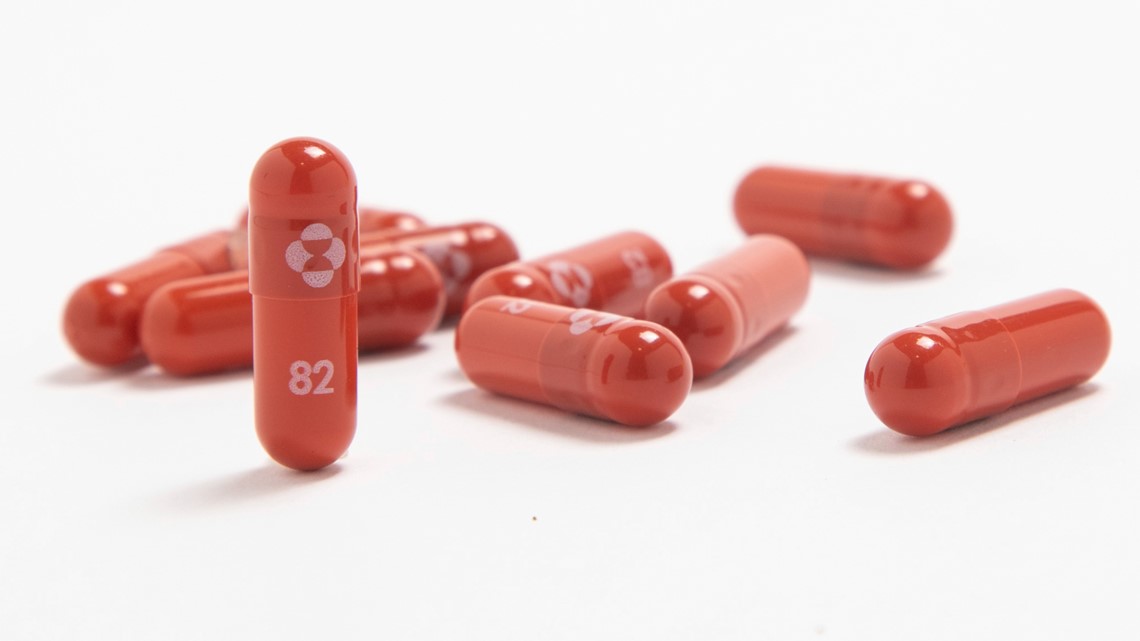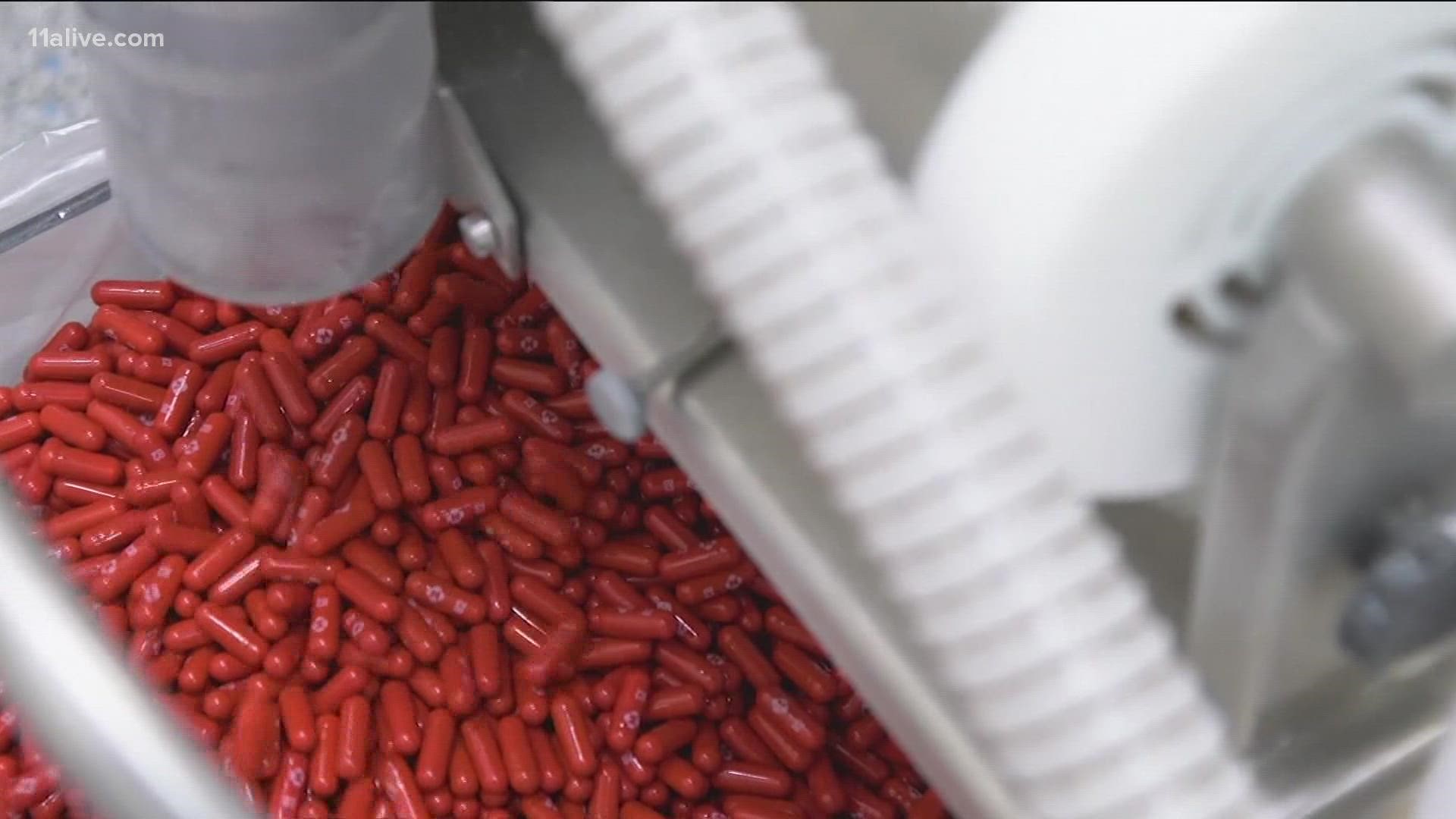ATLANTA — A multinational pharmaceutical company is expected to apply for emergency use authorization of a COVID antiviral pill discovered by Emory researchers.
Merck and Ridgeback Biotherapeutics is developing molnupiravir, an orally administered drug the company says appears to significantly reduce the risk of hospitalization or death for COVID patients.
According to a statement from Merck, it was invented at Drug Innovations at Emory (DRIVE), LLC, a nonprofit biotechnology company owned by Emory University.
“Emory is pleased that our researchers invented molnupiravir. I applaud Dr. George Painter’s dedicated work in drug discovery and appreciate our partners who supported the development of molnupiravir, including the Defense Threat Reduction Agency, National Institutes of Health, Merck and Ridgeback,” said Gregory L. Fenves, president of Emory University.
Molnupiravir could be the first pill to treat COVID-19 if emergency use is authorized. All COVID-19 therapies now authorized in the U.S. require an IV or injection.
“With the virus continuing to circulate widely, and because therapeutic options currently available are infused and/or require access to a healthcare facility, antiviral treatments that can be taken at home to keep people with COVID-19 out of the hospital are critically needed,” said Wendy Holman, chief executive officer of Ridgeback Biotherapeutics.


Merck said molnupiravir reduced the risk of hospitalization or death by nearly 50%. 7.3% of patients who received the treatment were hospitalized over the course of 30 days during interim analysis, compared to 14.1% of patients on the placebo pill who were either hospitalized or died.
“We are very encouraged by the results from the interim analysis and hope molnupiravir, if authorized for use, can make a profound impact in controlling the pandemic. Our partnership with Merck is critical to ensuring rapid global access if this medicine is approved, and we appreciate the collaborative effort to reach this important stage of development,” Holman said.
The Food and Drug Administration could make a decision within weeks once the submissions is completed. If it's approved, the drug could be on the market soon after.
“As one of our nation’s leading research universities, the goal of serving humanity is infused into everything we do at Emory. George’s discovery is the latest example of the Emory mission in action and we will continue to invest in our researchers, scientists, and their groundbreaking work to benefit communities the world over," Fenves said.
Merck only studied its drug in people who were not vaccinated. But FDA regulators may consider authorizing it for broader use in vaccinated patients who get COVID-19 symptoms.

